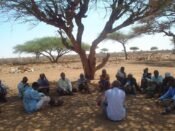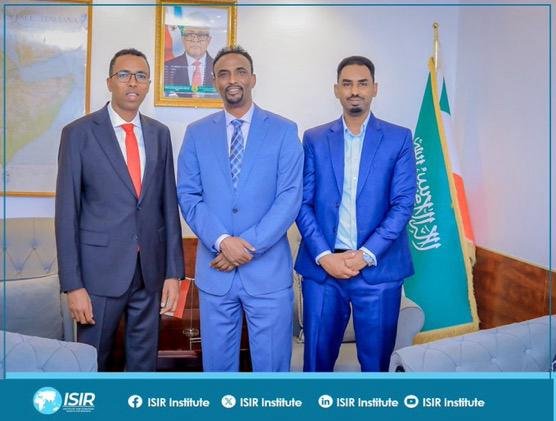
In a rare but powerful show of leadership and restraint, senior traditional leaders from both Somaliland and the SSC-Khatumo region have taken an encouraging step toward peace in a land long torn by cycles of violence. During a traditional coronation ceremony in the Somali region of Ethiopia on Monday, Garad Jama Garad Ali—the paramount leader of SSC-Khatumo—vowed that no further attacks would be launched from his territory against Somaliland. His public appeal for reciprocal commitment was swiftly answered by Suldan Daud Mohamed, a prominent elder representing Somali clans within Somaliland, who pledged to work tirelessly to end the bloodshed that has consumed lives and hopes across the region.
The image of these two venerable leaders shaking hands—firmly and in full public view—sent a clear, unmistakable message: enough is enough. This moment marked not just a symbolic gesture but a meaningful pivot toward peace, unity, and collective healing. While no formal ceasefire has yet been declared, their mutual declarations carry the weight of tradition and the power of moral authority. In Somali society, such words—when spoken by elders—are not taken lightly.
For local communities, this move offers a glimpse of hope after years of displacement, trauma, and lost futures. For international observers, it reinforces a lesson too often overlooked: in the Horn of Africa, and particularly in Somalia and Somaliland, traditional leaders often hold more sway than politicians or formal institutions. Their moral capital and cultural legitimacy place them at the heart of any successful effort to broker peace.
This makes their leadership all the more critical—and worthy of international support. As diplomats and analysts have noted, traditional elders possess the trust of their communities and understand the nuanced fabric of local grievances far better than outside mediators or distant governments. Their role is not only complementary to formal political processes—it is foundational.
But words must be matched with action. It is now incumbent upon political leaders on all sides to seize this opportunity and move the peace process forward. The time for zero-sum posturing has long passed. What is needed now is constructive dialogue on parallel tracks—traditional and political—that can pave the way for a durable and inclusive settlement. The alternative is a return to the cycle of violence that has already cost far too much.
The courage displayed by Garad Jama and Suldan Daud must not go to waste. This moment of clarity, of shared responsibility, must be built upon—one bridge at a time. Reconciliation is neither quick nor easy, but it begins with gestures like these: principled, public, and grounded in mutual respect.
To both local and international stakeholders: support this fragile but promising initiative. To the people of Somaliland and SSC-Khatumo: this is a chance to choose a different path, one defined not by grievance and gunfire, but by healing and hope.
Peace is within reach. Now is the time to grasp it.


